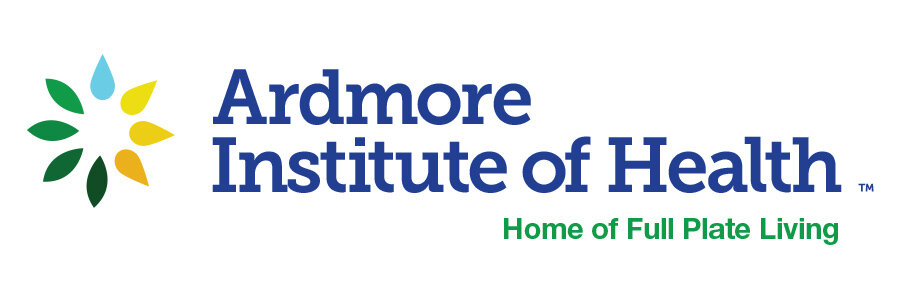Eating to Reduce Your Risk of Colon Cancer
Colorectal cancer is the third most common cancer in men and women and the third leading cause of cancer-related deaths in the US.(1) The good news is there are several lifestyle factors that affect your risk of colorectal cancer that you can do something about, one of the most powerful being your diet. This article discusses the evidence-based dietary risk factors for colorectal cancer and provides recommendations for optimizing your health.
Increased risk
A meta-analysis found high intakes of red and processed meat were associated with significant increased risk of both colon and rectal cancer.(3) In these studies, red meat included beef, veal, pork, mutton and lamb, while processed meat was comprised of ham, bacon, sausages, cured or preserved meats. Increased risk was associated with just 100 grams of red meat a day, which is a 3.5 ounce cooked burger or ribeye steak, for example. Increased risk was associated with just 50 grams of processed meat a day, which is approximately one medium slice of cooked ham or 4 thick slices of cooked bacon.(4) A subsequent comprehensive meta-analysis confirmed that red meat and processed meat convincingly increase colorectal cancer risk by 20-30%.(5)
Decreased risk
According to a report from the American Institute for Cancer Research, there is strong evidence that eating whole grains and other foods containing fiber (fruits, vegetables, beans) decreases risk of colorectal cancer.(6),(7),(8),(9) How does fiber do that? A major mechanism is fiber’s impact on the microscopic bugs that live in our colon.
Fiber and the gut microbiota
The trillions of microscopic organisms that live in our colon are referred to as the gut microbiota. They can be broadly divided into two main categories:
beneficial, health-promoting bacterial species and
pathogenic, disease-promoting bacterial species.
A healthy gut microbiota is one in which the beneficial, health-promoting bacteria predominate over the pathogenic, disease-promoting bacteria.
Dietary fiber is the key nutrient for fueling the beneficial bacterial species, increasing their abundance and variety.(10) These bacteria ferment fiber into three different short-chain fatty acids, which have many health-promoting effects, including maintaining intestinal health, suppressing inflammation and suppressing carcinogenesis (the development of cancer).(11) In other words, a high-fiber diet helps protect the colon from the formation of cancerous tumors.
Both red and processed meat do not contain dietary fiber(4) and have been shown to increase pathogenic, disease-promoting bacterial species.(10) The World Health Organization (WHO) has declared processed meat a Group 1 carcinogen, meaning there is sufficient evidence to say that processed meat causes colorectal cancer in humans. The WHO has declared red meat a Group 2A carcinogen, meaning red meat is probably carcinogenic to humans based on limited positive evidence.(12)
Recommendations
In order to optimize your health and longevity by decreasing your risk of colorectal cancer, work on the following:
According to current evidence-based guidelines, people can eat approximately 500 grams a week, or 70 grams a day, of red and/or processed meat without raising colorectal cancer risk.(5),(13) If you have a first-degree relative (parent, sibling, child) with a history of colorectal cancer or you have a history of adenomatous polyps, talk to your doctor to see if these recommendations are appropriate for you.
Greatly increase your intake of unprocessed, natural fiber foods at every meal: fruits, vegetables, beans and whole grains.
Full Plate Living has many free resources to help you enjoy more natural fiber foods.
If you are under medical supervision for any reason, please consult with your doctor before following these recommendations.
References
https://www.cdc.gov/cancer/colorectal/basic_info/risk_factors.htm
Chan DS, Lau R, Aune D, et al. Red and processed meat and colorectal cancer incidence: meta-analysis of prospective studies. PLoS One. 2011;6(6):e20456. doi:10.1371/journal.pone.0020456
Nutritional information: https://fdc.nal.usda.gov/fdc-app.html#/food-details/173055/nutrients
Aykan NF. Red Meat and Colorectal Cancer. Oncol Rev. 2015;9(1):288. Published 2015 Dec 28. doi:10.4081/oncol.2015.288
Murphy, N., Norat, T., Ferrari, P., Jenab, M., Bueno-de-Mesquita, B., Skeie, G., Dahm, C. C., Overvad, K., Olsen, A., Tjønneland, A., Clavel-Chapelon, F., Boutron-Ruault, M. C., Racine, A., Kaaks, R., Teucher, B., Boeing, H., Bergmann, M. M., Trichopoulou, A., Trichopoulos, D., Lagiou, P., … Riboli, E. (2012). Dietary fibre intake and risks of cancers of the colon and rectum in the European prospective investigation into cancer and nutrition (EPIC). PloS one, 7(6), e39361. https://doi.org/10.1371/journal.pone.0039361
Baxter BA, Oppel RC, Ryan EP. Navy Beans Impact the Stool Metabolome and Metabolic Pathways for Colon Health in Cancer Survivors. Nutrients. 2018 Dec 22;11(1):28. doi: 10.3390/nu11010028. PMID: 30583518; PMCID: PMC6356708.
Aune D, Chan DS, Lau R, et al. Dietary fibre, whole grains, and risk of colorectal cancer: systematic review and dose-response meta-analysis of prospective studies. BMJ. 2011;343:d6617. Published 2011 Nov 10. doi:10.1136/bmj.d6617
Huang, P., & Liu, Y. (2019). A Reasonable Diet Promotes Balance of Intestinal Microbiota: Prevention of Precolorectal Cancer. BioMed research international, 2019, 3405278. https://doi.org/10.1155/2019/3405278
Sivaprakasam S, Prasad PD, Singh N. Benefits of short-chain fatty acids and their receptors in inflammation and carcinogenesis. Pharmacol Ther. 2016;164:144‐151. doi:10.1016/j.pharmthera.2016.04.007
https://www.nhs.uk/live-well/eat-well/red-meat-and-the-risk-of-bowel-cancer/

